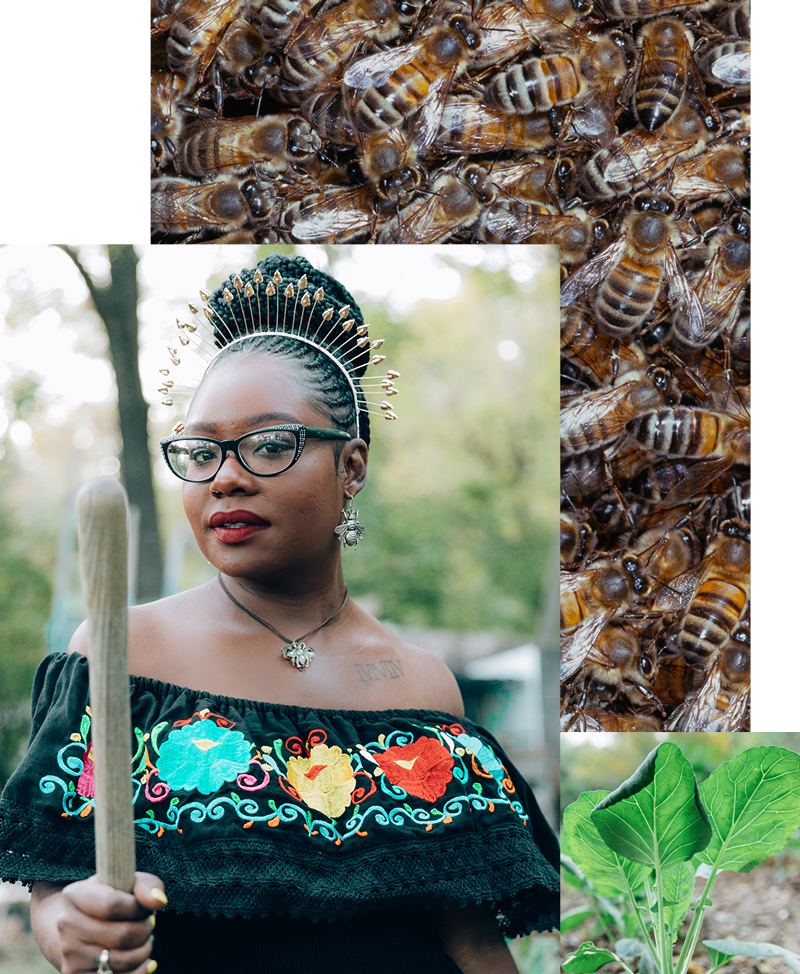
MEET A FARMER
Samantha Foxx
Mother’s Finest Urban Farms
Winston-Salem, North Carolina
For Samantha Foxx, founder of Mother’s Finest Urban Farms in Winston-Salem, North Carolina, whether she would weave or withdraw her thread from her community was never a question. She is a force of nature weaving in, out, and around her local ecosystem and within each relationship.
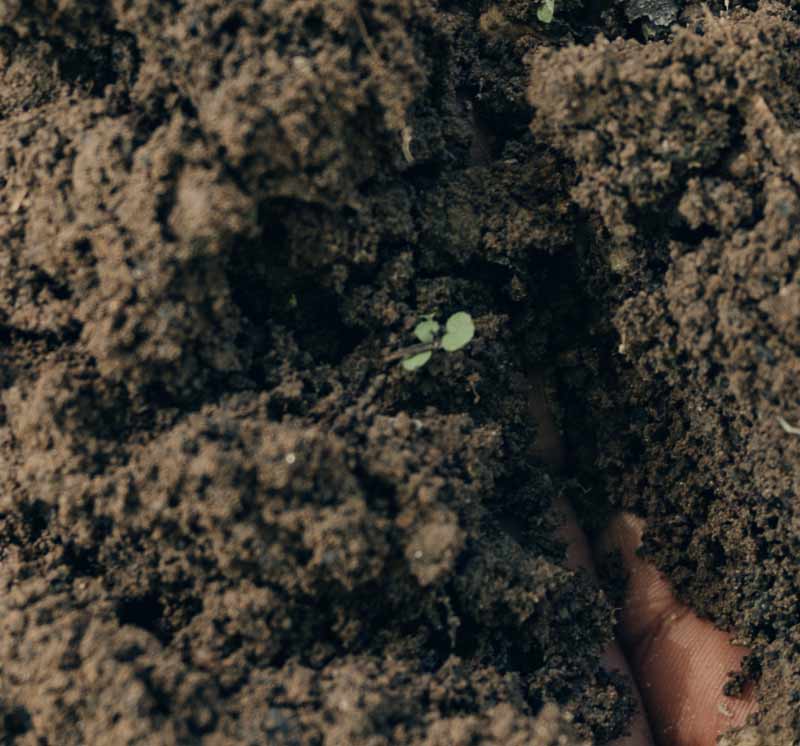
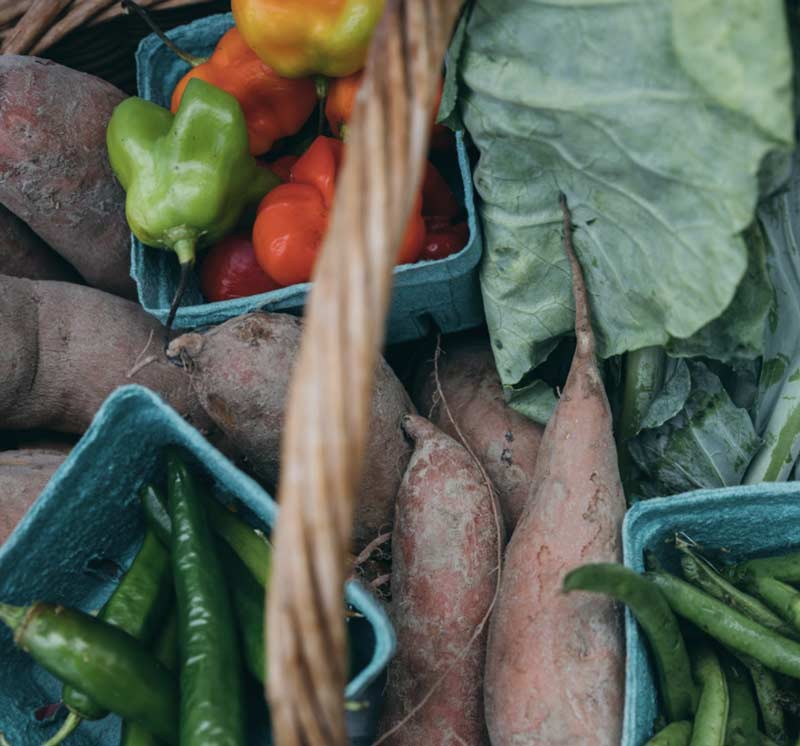
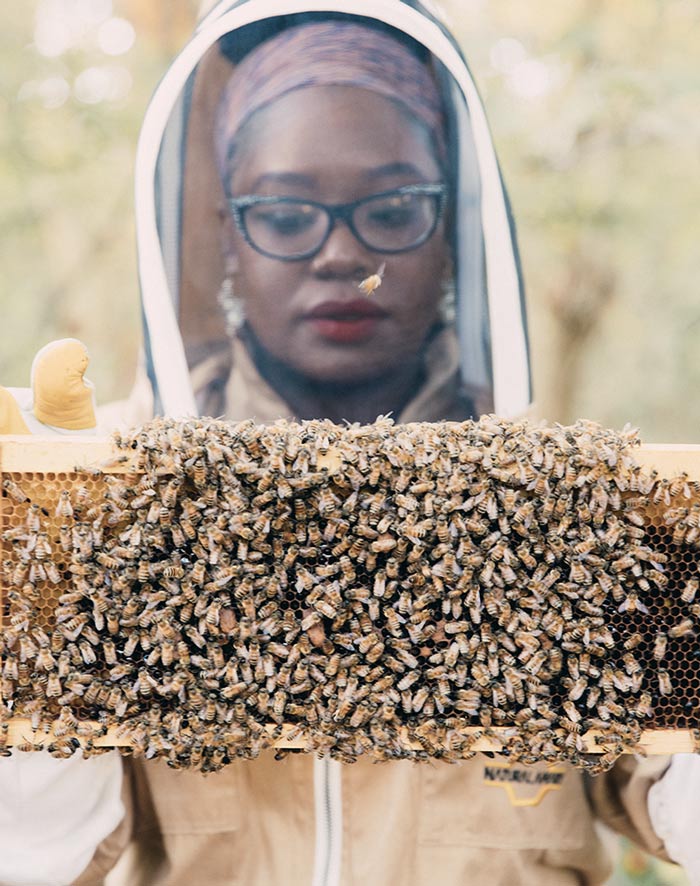
On any given day you can find her rising early as the morning dew drops. She stands with muddied boots pressed to the roots of her land, gazing out at the farm and what is likely to be another 12 hour day. She is a master beekeeper, hosts beekeeping classes, farm experiences for kids, manages a 2.5 acre urban farm plus leases additional acreage, runs a farmers market, a CSA, is considered the community medicine woman harvesting and producing homeopathic herbal remedies. And if that’s not enough, she’s a mom and homeschools her son.
Most would call that exhausting, but Samantha doesn’t measure her day in hours or stamina, she measures her day by the empty dinner plates she was able to fill, the holistic remedies she was able to provide to people suffering from COVID 19 with nowhere else to go for care, and the hope-filled reactions of young Black boys and girls exposed to a model of what working on the land looks like as a healing and viable living.
“Showing up is so important. I’m making the decision to show up right now because people are sick and they don’t have access to healthy food. We need people to show up right now for each other. My main focus is being here for the people who don’t just see this as food, they see it as hope and being here for the bees and educating people on why we need these things is how change is going to happen.”
WHERE IT ALL BEGAN
“Land is precious and sacred to me because it was a big part of my upbringing. Having such a strong connection to food, culture and family, I decided I needed to come back to the land.”
When Samantha was growing up she remembers her grandmother hollering her name which meant it was time to get ingredients for the family meal. She would venture out into the sundrenched fields of golden grains, harvesting armfulls. The journey back home was always faster than getting there because she knew creating something delicious from her harvest would come next. “Making the most out of what you had was instilled in me early on in life and I wanted to get back to that feeling and share that with my kids.”
She didn’t know it at the time, but the move back to North Carolina would be a defining moment in her life where farming, teaching, motherhood, activism and art would intertwine into a mosaic of a leadership role in her community.
A drawer full of thank you notes from people in her community are a reminder of how she is emboldening and healing her community while shifting generations of pain and trauma.
Incalculable numbers of Black people have been excluded from land ownership throughout history, many with traumatic experiences associated with slavery and soil. Even today, in her own county, only 10 of 908 farms are African-American owned and the latest USDA reports show African American farmers make up less than 2 percent of the entire country’s 3.4 million farmers.
Samantha sees soil as the solution to healing, reparations, land stewardship and an opportunity for a new narrative reframing what it means to be a Black farmer. As she tends to her bee yard, golden rays radiate out from behind the apiary. It’s the crown she wears as a symbolic reminder of the shift in paradigm she embodies for her generations and those past – from enslaved to empowered.
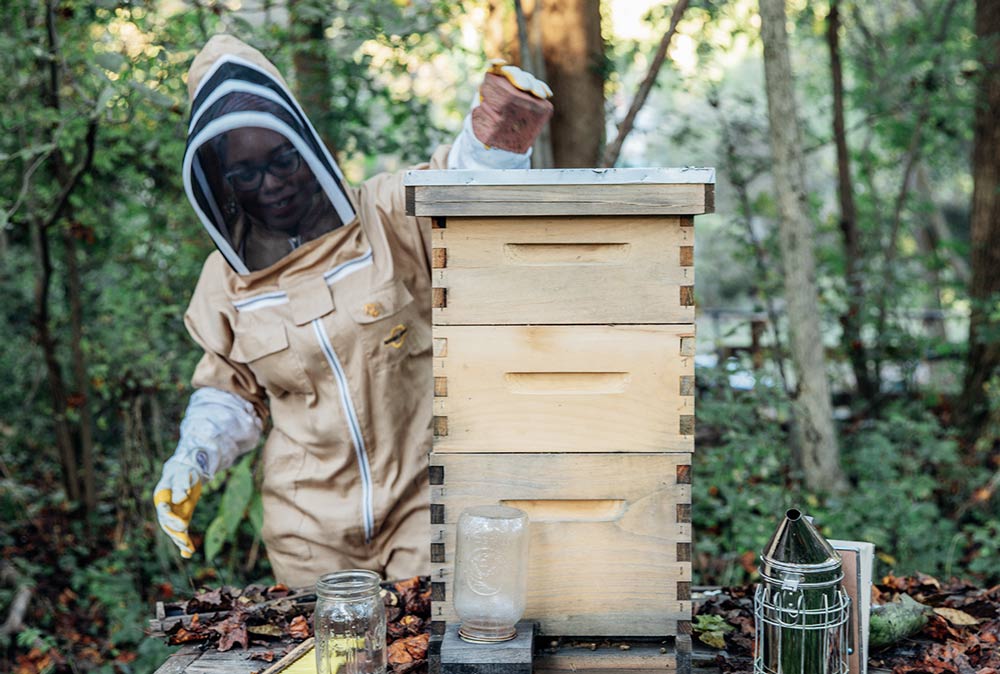
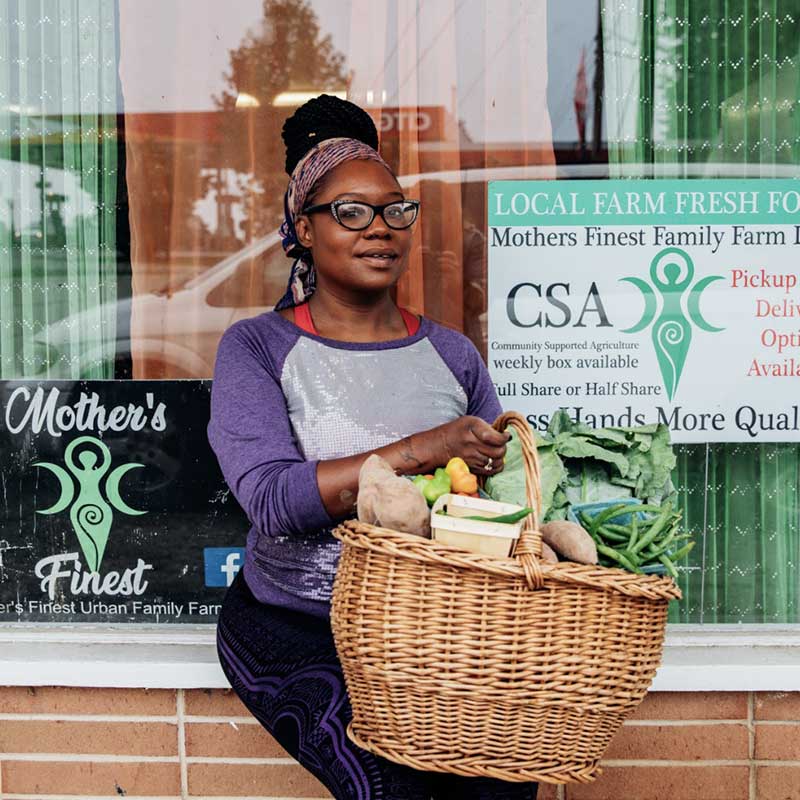
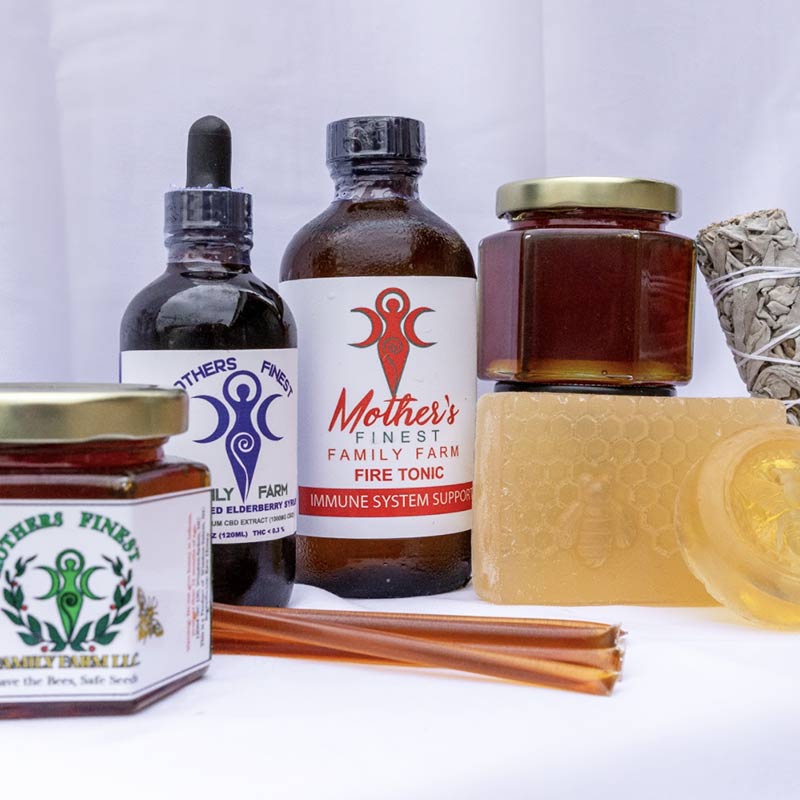
“Once you realize you can picture your life within it and change the reality, it’s game changing and that is what I want aspiring Black farmers to see.”
Samantha’s operation is a living, breathing tool building more resilient communities and inspiration for a new generation, including her son. The eager and engaged eyes of her 6 year old son Kingston, also known as “Farmer Boy,” watch as she tends to the chickens, awaiting the green light from his mom to get the eggs.
”He’s out here learning hands on experience by nature. There is no better teacher than that. We underestimate what kids can do. They are highly intelligent. Having him out here is teaching him empathy for all creatures and living things, it’s letting him see he can grow and sustain what he needs to thrive… and you’re not going to see that in a Kindergarten textbook.”
Kingston drops his knowledge regularly on Samantha’ social media accounts:
2020. BLACK LIVES MATTER & BEYOND
“This year has been hard for this community, and provided an opportunity for me to serve. It has challenged me to pull from the strength of the women in my family. Hard times have molded me into who I am today, built my character and the need to always get back up and try.”
Samantha’s grandmother made history becoming the first black female probation officer in Wayne County. “She was a strong woman, and can you imagine going into a system like that, and not only are you a person of color, but you’re also a woman. So, I saw women like that, really doing it, not taking no for an answer. So I carry that along with me. Seeing things like that growing up, it’s not hard for me to make hard decisions and do what’s best for not only my family but my community.”
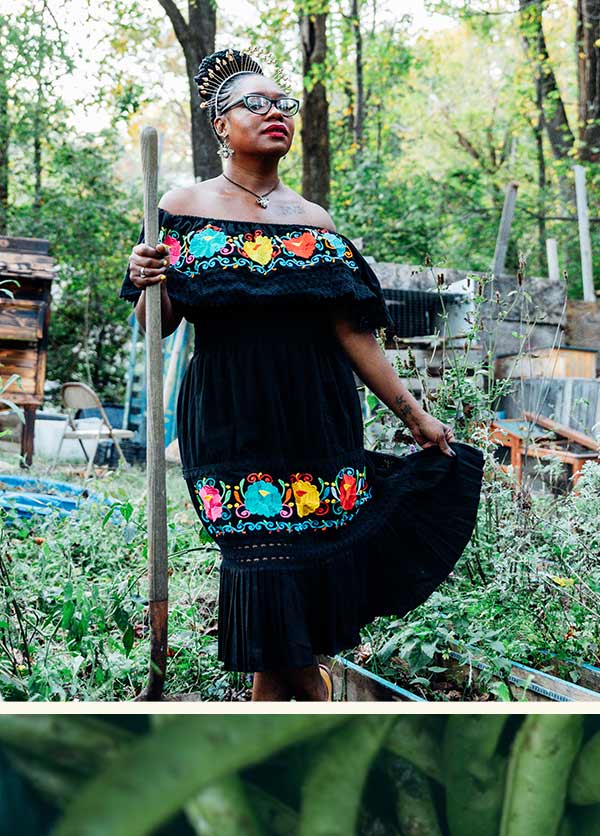
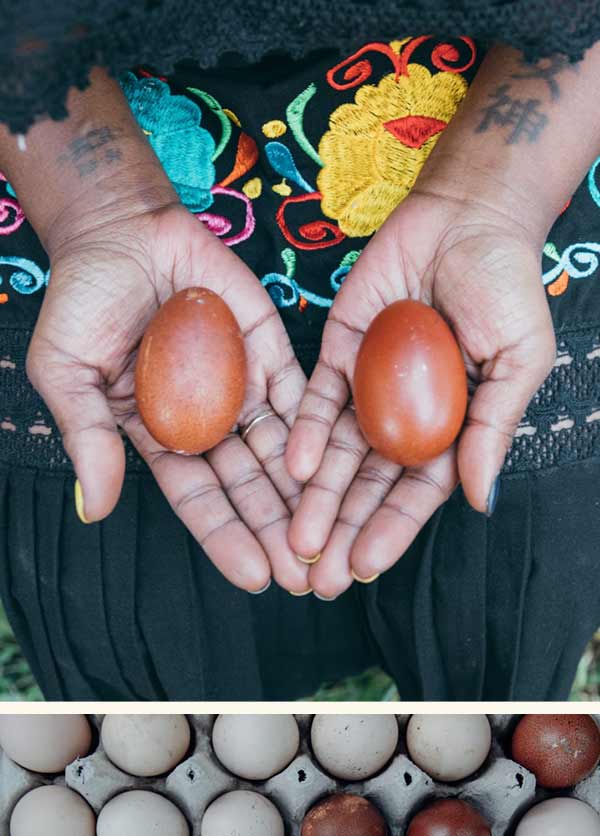
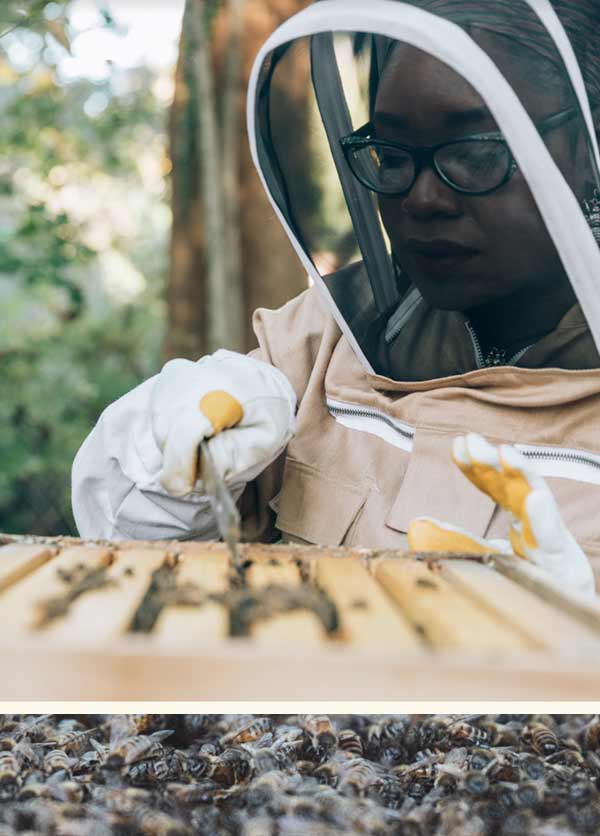
Samantha teaches us the strength required to uplift others comes from planting knees to the ground, pressing hands deep into the soil to grow nourishing food that heals.
“I’m just trying to lead by example, in the best way that I can. I’m still evolving and still learning, but that’s the beauty of it. I just really want to see people connect with the land and show more love out here for things that matter.”
Connect with all of the incredible work Samantha is doing and support her here:
Live Farmside chat Wednesday, December 2 11:00AM PT
Website:
Etsy Shop:
Follow on Instagram:
